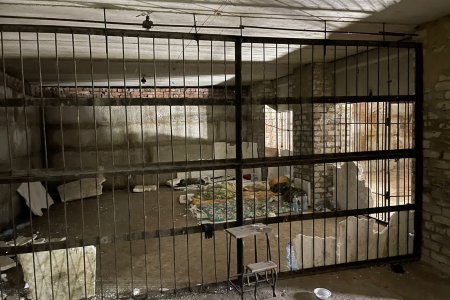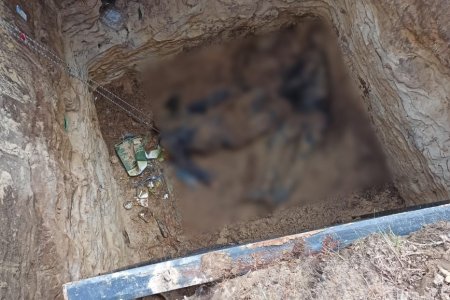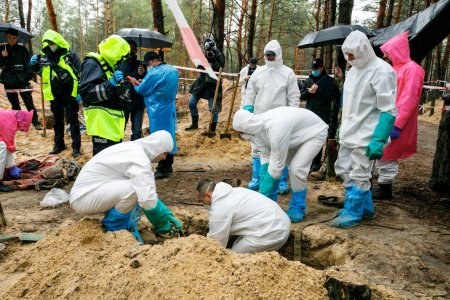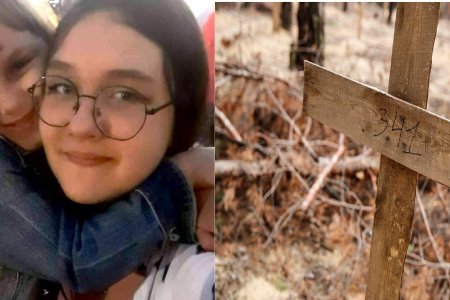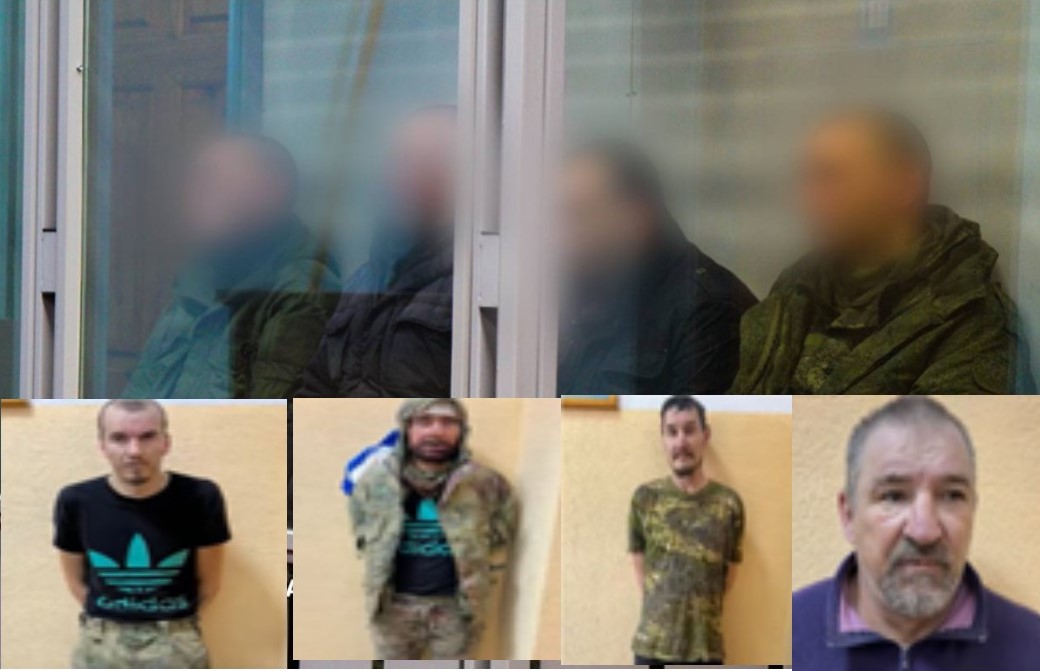
Ukraine’s Security Service [SBU] and Prosecutor General’s Office reported the sentences on 24 December. The men, whose names are not given, are said to have been members of a Russian sabotage and intelligence group committing war crimes in Kharkiv oblast. They were, the SBU asserts, carrying out instructions to abduct and physically eliminate ATO veterans (soldiers who had fought in the Anti-Terrorist Operation, i.e. the military conflict in Donbas from 2014.
The specific charges pertained to the Russians’ abduction of three ATO veterans from the urban settlement Borova in Kharkiv oblast at the beginning of September. It is asserted that they brutally tortured the men, trying in this way to force them to give them information about other Ukrainians. One of the men in particular was hit around their arms and legs with a hammer, and all were imprisoned without food or water. The Russians also threatened to kill their hostages, although they did, eventually, let them go.
The four Russians were captured in October. As well as the two officers from the GRU’s 16th special forces brigade, there were two mercenaries working for one of Russia’s so-called ‘private military companies’. It is, in theory, illegal in Russia to be a mercenary, however men in the Wagner unit and other such ‘private military companies’ are clearly working together with the Russian military.
The Russian invaders have begun abducting Ukrainian civilians in any part of Ukraine that they gained temporary control over, with ATO veterans, retired servicemen, even the families of current Ukrainian defenders often particularly hunted. These are not, however, the only victims with the Russians often taking civic activists, volunteers, civil servants hostage as well. In some cases, civilians are almost certainly targeted in order to extort money from their families.
Among those abducted, many have simply disappeared, with their families unsure whether they were taken to Russia or occupied Crimea, or killed. Relatives have provided DNA samples to find out if the bodies of their loved ones are in the mass graves of almost 500 people found in the forest outside Izium. Back on 23 September, Oleh Syniehubov, Head of the Kharkiv Regional Administration, reported that the initial exhumation had been completed. It had found, he said, that the majority of victims had died a violent death. While this included civilians, such as three generations of the Stolpakov family who died when the Russians shelled their home, at least thirty bodies showed clear signs of torture. Although on a much smaller scale, the bodies of victims have also been found in at least three liberated places in the Kharkiv oblast (Kamianka; Novopatorivka and Kupiansk-Vuzlovy).
Ukraine’s Prosecutor General Andriy Kostin reported on 20 November that the bodies had been uncovered of over 700 Ukrainians killed by the invaders while they were occupying those parts of the Kharkiv, Kherson and Donetsk oblasts which have now been liberated. Almost 90% of the victims were civilians.
By 18 November, Kharkiv oblast investigators had found 25 premises where the Russians imprisoned and tortured Ukrainian POWs and civilian hostages. As well as in Izium, such ‘prison’ – torture chambers were used in occupied Balakliya; Vovchansk; the village of Lyptsy and Kozacha Lopan, an urban settlement very close to the Russian border. In Piski-Radkivski, local residents informed the law enforcement bodies of a basement which the Russians used to imprison and torture ATO veterans and POWs. The victims were, for example, tortured by being buried alive, and then dug up. as well as with the use of a gas mask stuffed with a smouldering rag. Neighbours reported hearing screams from the basement during the night.
A standard method of torture in very many of these ‘prisons’ was the use of electric currents, with wires attached to earlobes, fingers or even genitals, causing unendurable pain.
In one of three such ‘prisons’ found in Kozacha Lopan, men and women were held together in a makeshift cage, with the Russians seemingly interrogating (almost certainly) torturing one victim in front of the other prisoners.
Soon after the Russians invaded Kozacha Lopan, a Kharkiv oblast urban settlement near the border, they came for Oleh Dyhalo, a local politician. They abducted and mercilessly beat up three men – Dyhalo himself, his 29-year-old son, despite knowing that the young man suffers from haemophilia and his nephew. They also threatened to bring in his 17-year-old daughter and have a lot of the Russian soldiers rape her, with her father forced to watch.
